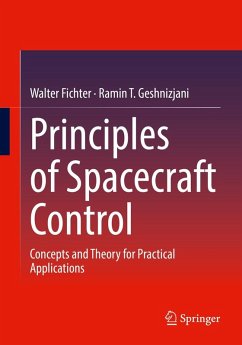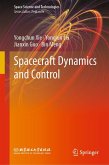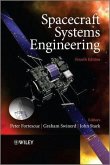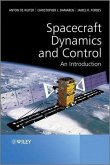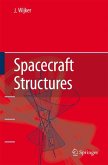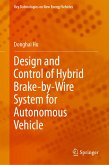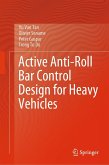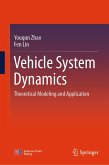The objective of this textbook is to provide the mathematical models and algorithms needed to develop a thorough understanding of all control system functions of a rigid body spacecraft. Relatively simple, but practically applicable algorithms are presented rather than recent advances. We try to avoid detailed and specialized issues that are of less importance for the fundamental understanding, such as detailed environment models, etc. Furthermore, control problems that can be cast in standard formulations and solved with existing methods are not treated here. Instead, we intend to provide an understanding of the principles, put them in an engineering context, and try to give all explanations as concise as possible. Besides conventional three-axis attitude control systems, the following topics are treated in this book:
- Control of agile rotation maneuvers using control moment gyros
- Precise pointing control with error classes for pointing instruments
- Control systems with accelerometers and free-flying test masses, which provide low-disturbance or disturbance-free environments
We believe that these topics are of considerable relevance for the design of future spacecraft control systems, especially in the field of science and Earth observation missions.
The Authors
Walter Fichter has been in industry for many years, working in the field of guidance, navigation, and controls for spacecraft. Since 2007 he is professor of flight mechanics and controls at the University of Stuttgart. His current research interests include autonomy of aerospace vehicles, intelligent flight, guidance and control of UAVs and urban air mobility vehicles.
Ramin Geshnizjani was a researcher at the Institute of Flight Mechanics and Controls of the University of Stuttgart and now works as a development engineer in the aerospace industry. His research interestsand current activities include attitude control of agile spacecraft with control moment gyros, navigation and state estimation, and pointing control.
Dieser Download kann aus rechtlichen Gründen nur mit Rechnungsadresse in A, B, BG, CY, CZ, D, DK, EW, E, FIN, F, GR, HR, H, IRL, I, LT, L, LR, M, NL, PL, P, R, S, SLO, SK ausgeliefert werden.
Es gelten unsere Allgemeinen Geschäftsbedingungen: www.buecher.de/agb
Impressum
www.buecher.de ist ein Internetauftritt der buecher.de internetstores GmbH
Geschäftsführung: Monica Sawhney | Roland Kölbl | Günter Hilger
Sitz der Gesellschaft: Batheyer Straße 115 - 117, 58099 Hagen
Postanschrift: Bürgermeister-Wegele-Str. 12, 86167 Augsburg
Amtsgericht Hagen HRB 13257
Steuernummer: 321/5800/1497
USt-IdNr: DE450055826
Bitte wählen Sie Ihr Anliegen aus.
Rechnungen
Retourenschein anfordern
Bestellstatus
Storno

